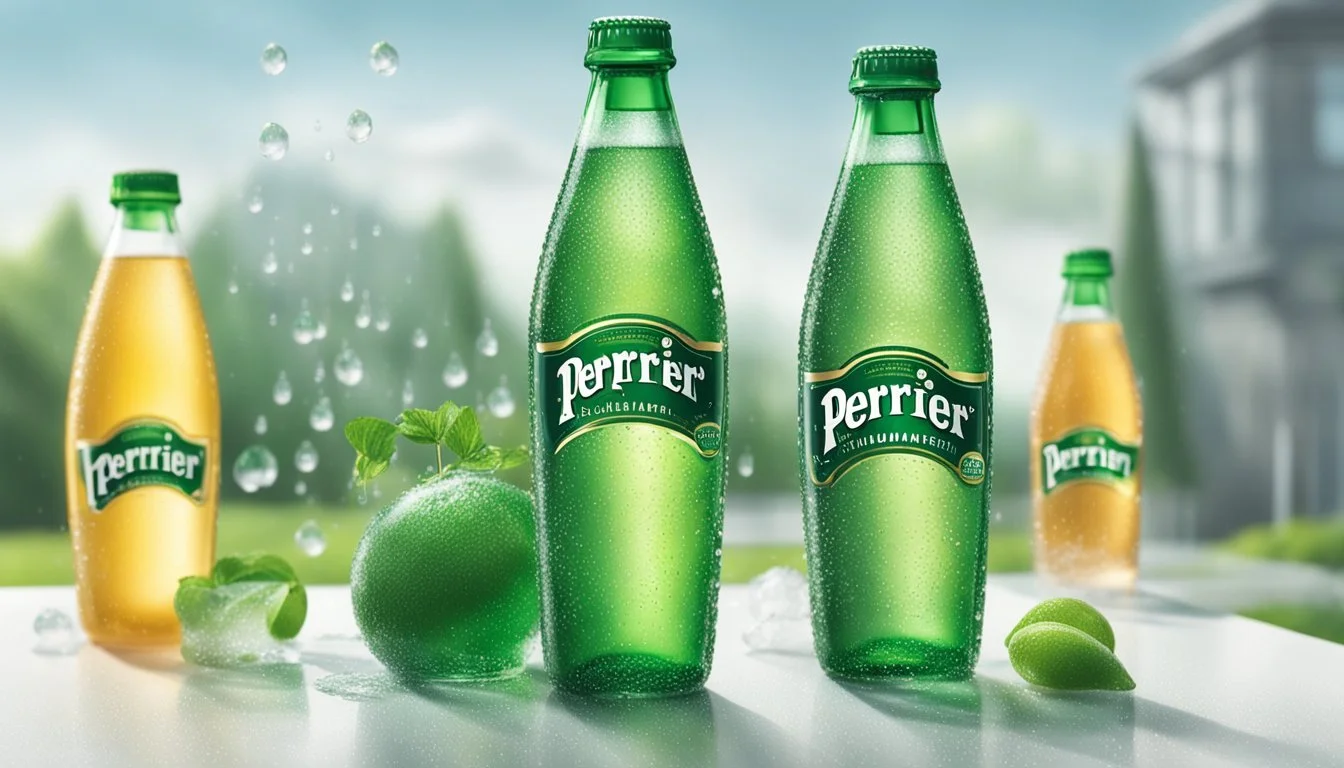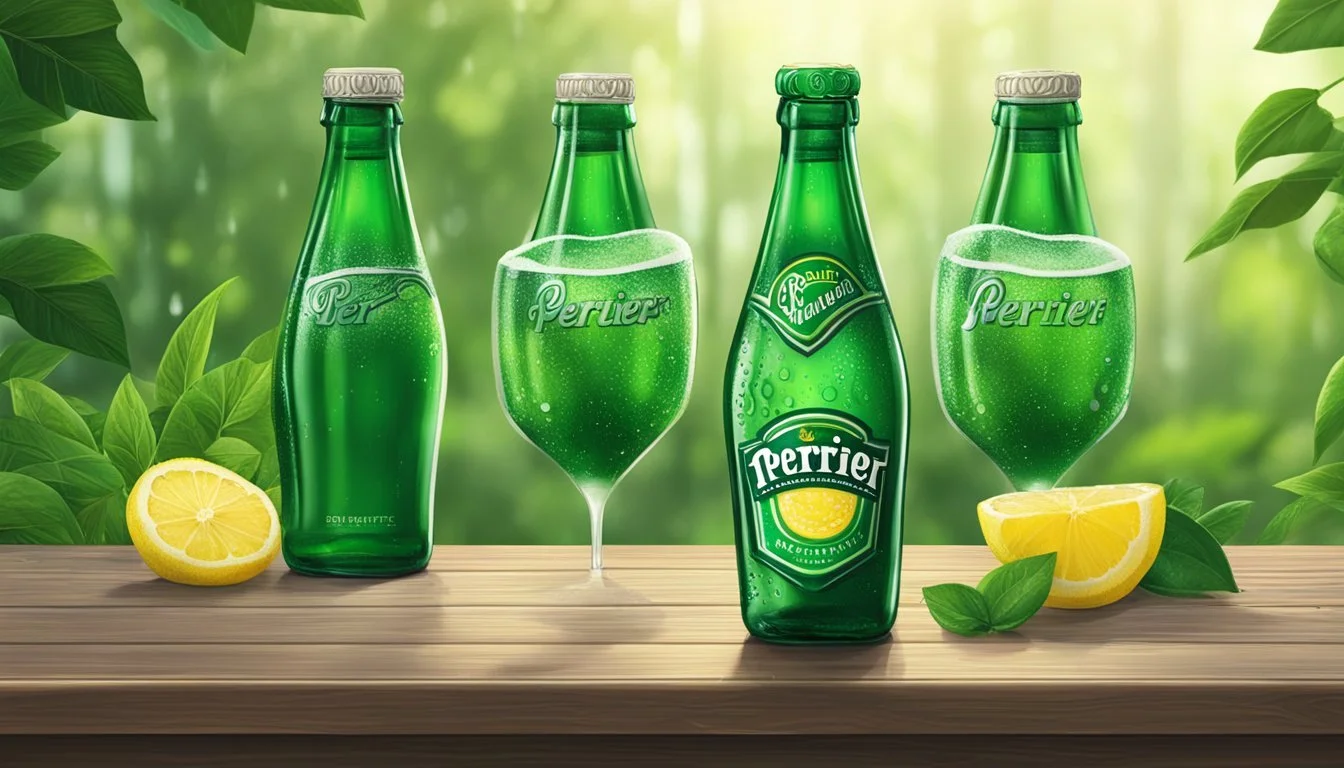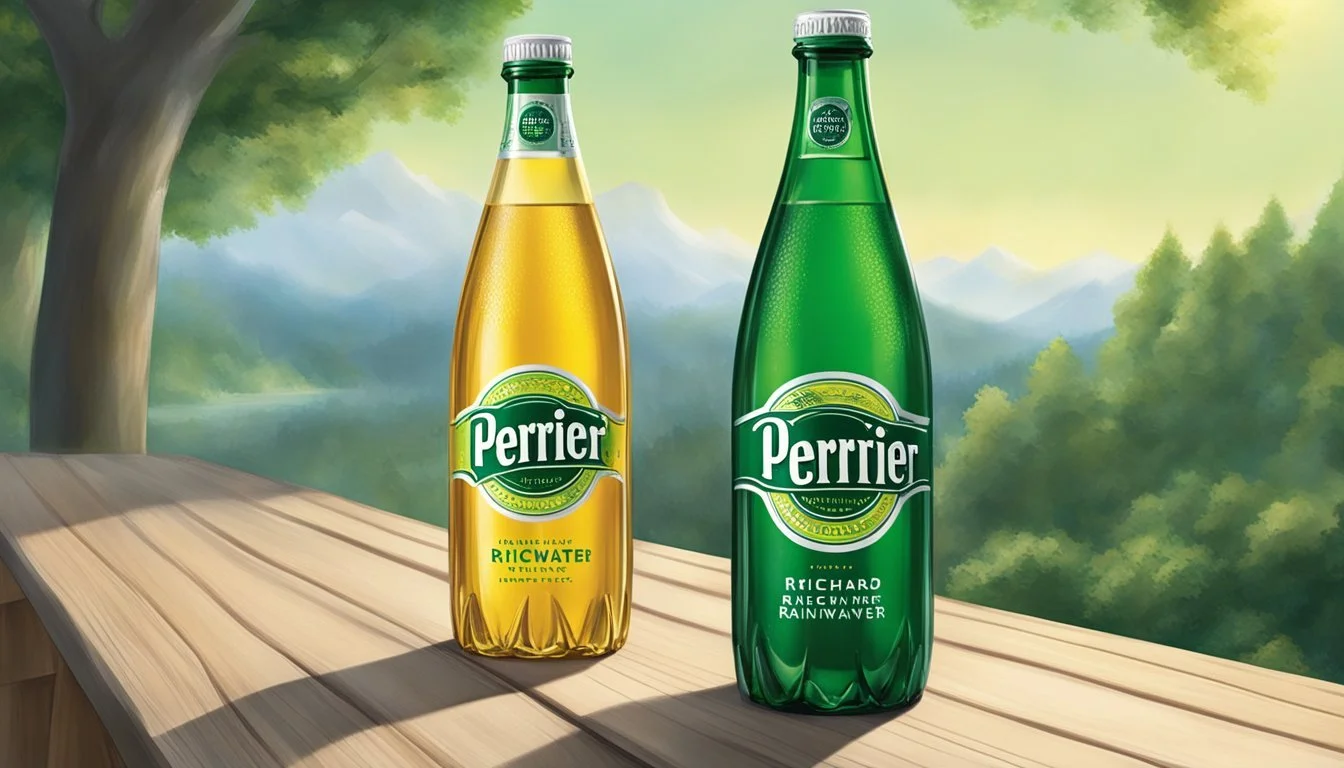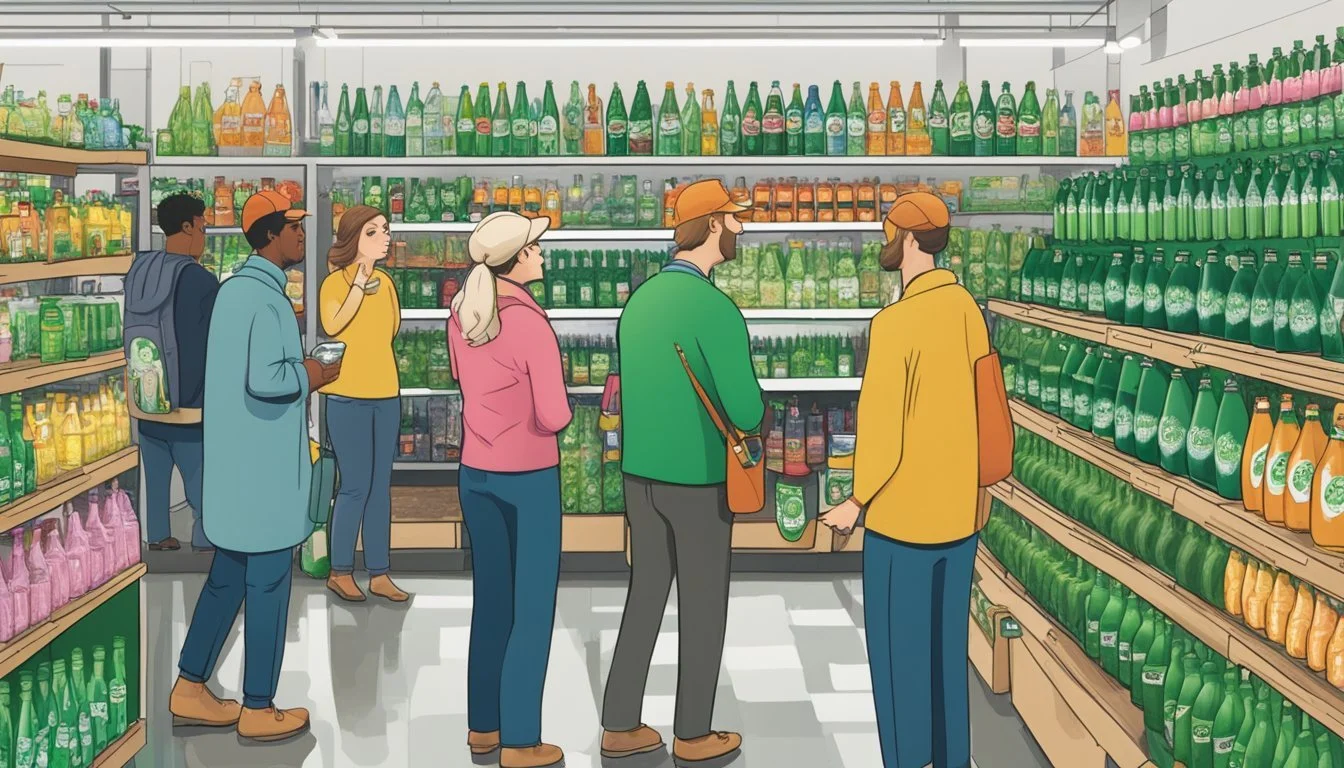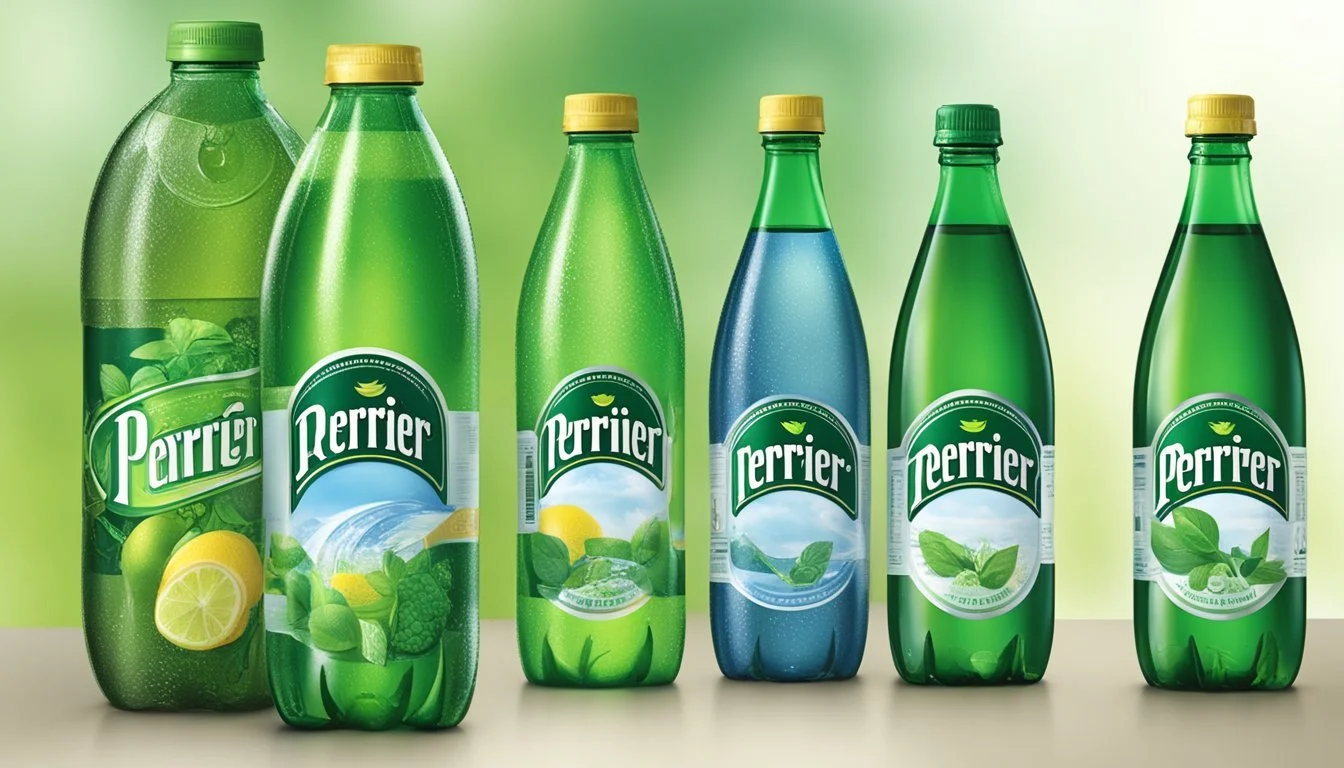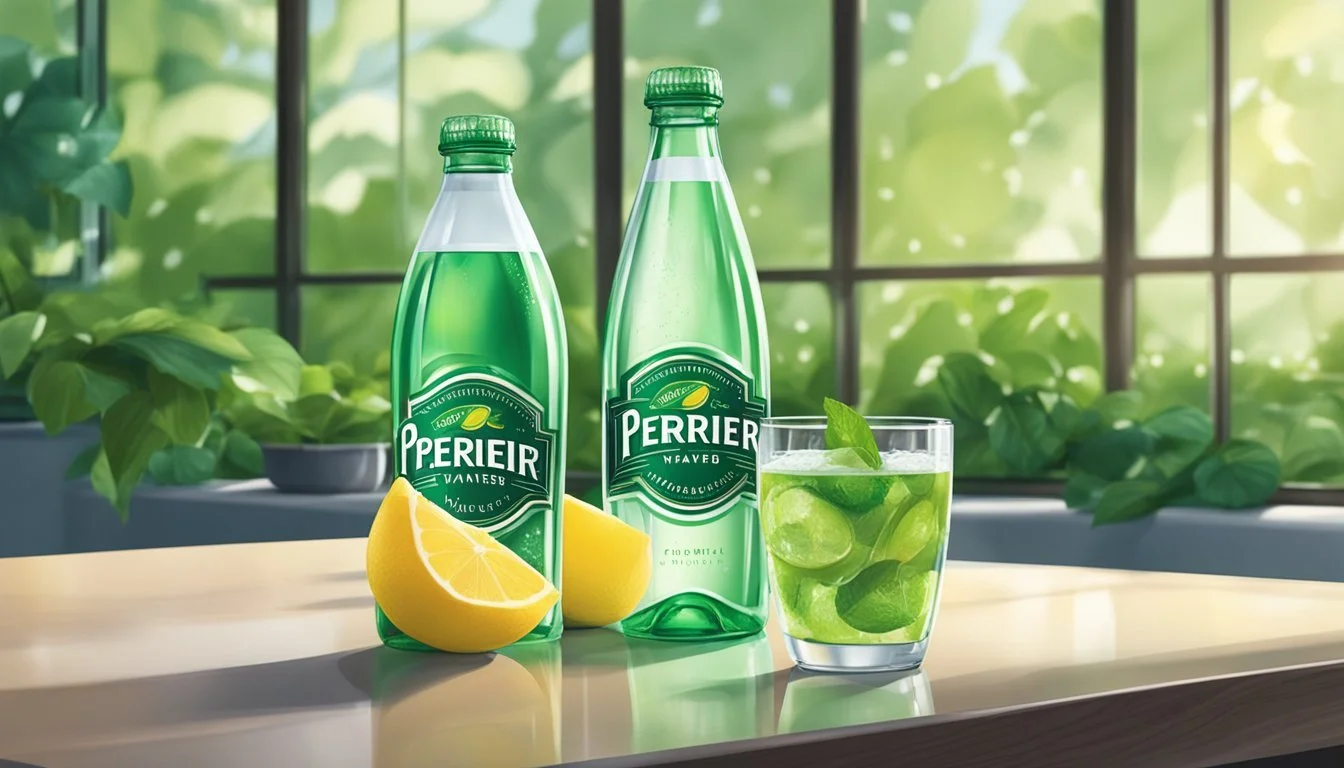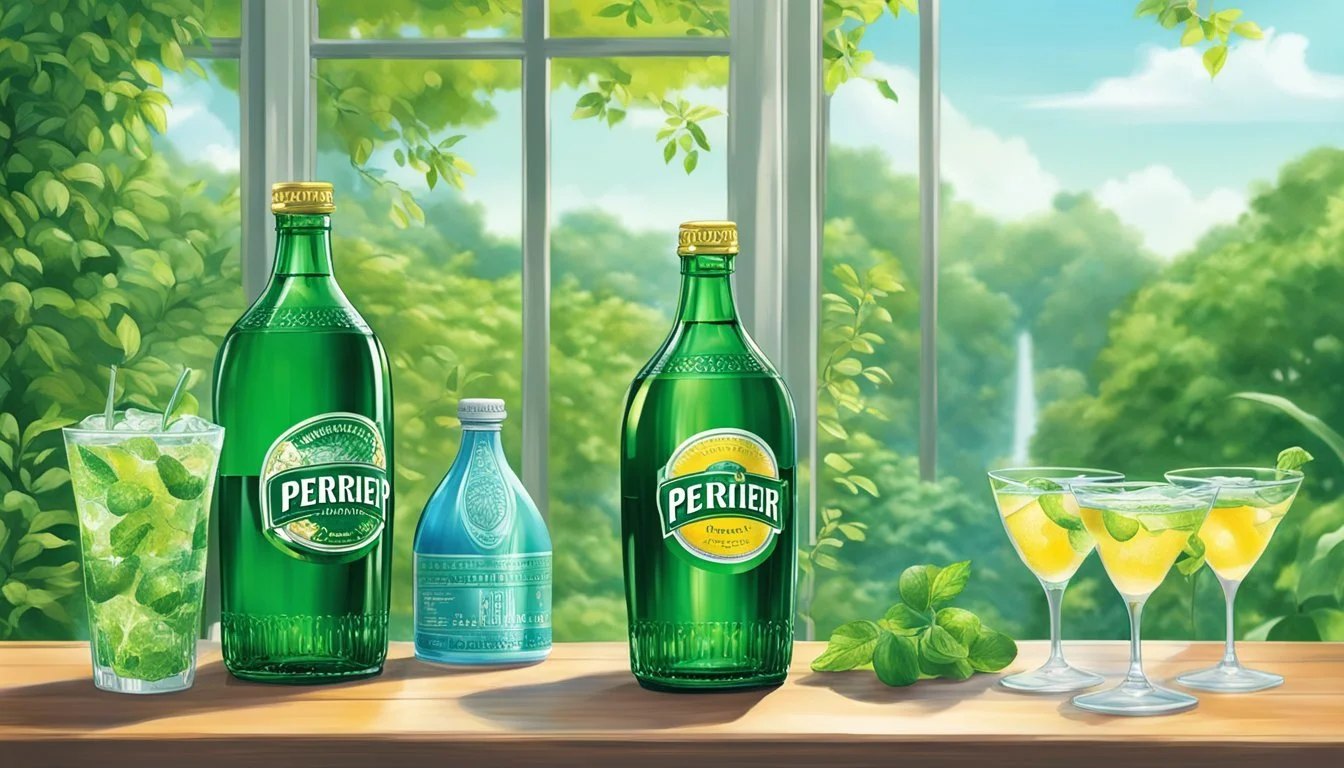Perrier vs. Richard’s Rainwater
Comparing Premium Bottled Waters
In the world of bottled water, Perrier and Richard’s Rainwater offer two unique options for consumers seeking quality drinking water. Perrier, known for its sparkling mineral water, caters to a niche market that enjoys its distinctive effervescence and sophisticated mineral blend. On the other hand, Richard’s Rainwater provides a refreshing alternative with its pure, collected rainwater, presenting itself as a simple yet elegant solution for potable water.
Perrier's appeal lies in its long-standing reputation for providing sparkling mineral water that exudes luxury and refinement. Its unique composition of minerals and carbonation has made it a favorite among those who enjoy a touch of sophistication in their hydration choices. Contrarily, Richard’s Rainwater captures the essence of nature by bottling rainwater that is untouched by artificial additives and preservatives.
When choosing between Perrier and Richard’s Rainwater, the decision boils down to personal preference for either the sparkling luxury of mineral water or the purity and simplicity of rainwater. Both brands offer high-quality products, but their distinct characteristics cater to different lifestyles and tastes, ensuring there is something for everyone.
Exploring the Brands
Perrier and Richard's Rainwater are two prominent names in the bottled water industry, each offering distinguished qualities and unique origins. They cater to different consumer needs and preferences, from sparkling mineral water aesthetics to sustainable rainwater harvesting.
History of Perrier
Perrier, a French brand, originated in 1863 when its mineral water source was first discovered in Vergèze, France. Today, it is renowned for its distinctive green bottles and robust effervescence. The brand gained global recognition for its sophisticated image catering to a premium market.
In the 1970s, Perrier entered the U.S. market, becoming synonymous with luxury and refinement. Known for its unique mineral blend and carbonation, Perrier is often associated with a refined palate and upscale dining experiences.
Insight Into Richard's Rainwater
Richard's Rainwater began its journey as a sustainable bottled water company, focusing on atmospheric water collection. Richard's Rainwater claims to be the first U.S. bottled water company to collect rainwater directly, making it 100% potable. The brand emphasizes sustainability and eco-consciousness for its water harvesting and bottling processes.
The company markets its product as a pure, natural alternative to traditional bottled waters. With operations starting in 2017, it has seen significant growth in sales, reflecting a rising consumer demand for environmentally-friendly water solutions. Richard's Rainwater also engages in philanthropy by donating water to areas in need.
Environmental Impact
Perrier and Richard’s Rainwater take different approaches to minimizing their environmental footprint. This section critically examines their sustainability commitments, packaging choices, and their reliance on renewable water sources.
Sustainability Commitments
Perrier has implemented several initiatives aimed at reducing its environmental impact. They focus on recycling programs and optimizing water use in their production processes. Additionally, Perrier is part of the Nestlé Waters initiative, which pledges to reduce its environmental footprint significantly by 2030.
Richard's Rainwater emphasizes sustainable practices as the core of their business model. They collect and purify rainwater, reducing the strain on natural freshwater sources. The company is also engaged in local environmental stewardship, supporting community projects that contribute to sustainable water management practices.
Packaging and Carbon Footprint
Perrier utilizes glass and PET plastic bottles for their products. Glass bottles are generally more sustainable as they can be reused and recycled indefinitely, while PET bottles are lightweight and have a lower carbon footprint during transportation. However, the production and disposal of PET plastics still pose significant environmental challenges.
Richard's Rainwater opts for aluminum cans and reusable glass bottles, which are more environmentally friendly. Aluminum is highly recyclable and requires less energy to process compared to plastic. This choice helps Richard’s Rainwater maintain a lower carbon footprint throughout the packaging lifecycle.
Water Source and Renewability
Perrier sources its water from the naturally carbonated springs in Vergèze, France. The water is mineral-rich and the source is carefully monitored to ensure sustainability. However, the extraction of spring water can have localized environmental impacts and rely on a non-renewable source over time.
Richard’s Rainwater collects and purifies rainwater, a renewable resource. Utilizing rainwater reduces dependency on aquifers and natural springs, making it more sustainable. The collection process also mimics the natural water cycle, with minimal disruption to ecosystems. This method presents a long-term, viable solution to meet increasing water demands.
By examining these factors, consumers can better understand the environmental implications of choosing between Perrier and Richard’s Rainwater. The differences in their sustainability commitments, packaging options, and water sources are crucial elements in determining which brand better aligns with environmentally conscious values.
Product Varieties and Features
Perrier and Richard’s Rainwater offer distinct options for consumers, focusing on the types of water and packaging formats they provide. Each brand emphasizes specific attributes that cater to different preferences and needs.
Types of Water Offered
Perrier specializes in sparkling water, known for its natural carbonation and unique mineral content. Perrier sparkling water comes from a spring in Vergèze, France. The brand does not offer a still water variant, highlighting its commitment to providing only sparkling options.
Richard's Rainwater, in contrast, collects and purifies rainwater, offering both still and sparkling water varieties. The still water is notable for its purity and fresh taste, while the sparkling option provides a crisp, effervescent experience. The diverse types of water make Richard’s Rainwater a versatile choice for various preferences.
Flavors and Packaging Options
Perrier offers several flavor options, including lemon, lime, and grapefruit, enhancing its sparkling water with subtle, natural tastes. Perrier is available in various packaging formats like glass bottles and plastic bottles, catering to different consumption scenarios and ensuring convenience for the consumer.
Richard's Rainwater emphasizes its commitment to environmental sustainability. Its water, both still and sparkling, is packaged predominantly in reusable glass bottles. While Richard’s Rainwater may not have an extensive flavor range like Perrier, its eco-friendly packaging and focus on pure rainwater make it a notable choice for environmentally-conscious customers.
Collection and Filtration Processes
This section focuses on the collection and filtration methods employed by Perrier and Richard’s Rainwater. Exploring these processes highlights their efforts to ensure pure and safe drinking water.
Rainwater Collection and Use
Richard’s Rainwater is sourced directly from rain, making it unique among bottled waters. They collect rainwater from specialized facilities across the U.S., gathering approximately 4 million gallons annually. This method harnesses natural precipitation, minimizing the need for extraction from groundwater or municipal sources. By collecting rainwater, they bypass issues associated with municipal water contamination, such as chlorine and fluoride.
Perrier, in contrast, sources its water from a natural spring in Vergèze, France. This spring water is captured at the source, retaining its mineral content. Spring water collection leverages the earth's natural filtration, often resulting in water with a higher mineral content compared to municipal sources.
Natural Filtration Methods
For Richard’s Rainwater, the natural filtration process begins as rainwater passes through minimal exposure to pollutants, maintaining its purity. The filtration then involves sediment removal and micron filtration to eliminate impurities without adding any minerals. This is distinct from municipal water, which typically involves chemical treatments.
Perrier water benefits from natural filtration through geological layers which enrich it with minerals like calcium and magnesium. This process distinguishes Perrier from conventional purified water. The natural filtration through sandstone or limestone layers helps in the removal of potential contaminants like lead and arsenic, ensuring the water remains naturally pure.
Purification Standards
Richard’s Rainwater employs a rigorous purification system that includes multiple steps such as ultraviolet (UV) treatment and ozonation. These methods ensure the eradication of microorganisms, making the water safe for consumption. Their proprietary, virtually zero-waste system contributes to making more water available for drinking compared to traditional methods.
Perrier, with its naturally carbonated spring, undergoes strict quality control processes. Although the water is naturally filtered, it also passes through fine filtration to ensure compliance with health standards. Unlike municipal water, which often requires significant chemical treatment, Perrier’s water remains free from additives such as chlorine.
By examining these collection and filtration methods, it is evident that both Perrier and Richard’s Rainwater adopt practices that prioritize water purity, each with its unique advantages.
Taste and Quality
The taste and quality of Perrier and Richard’s Rainwater have been subjects of both consumer reports and professional evaluations. These insights provide a comprehensive understanding of what sets these two bottled waters apart.
Consumer Reports and Feedback
Consumers frequently describe Perrier as possessing a distinct, effervescent quality thanks to its natural carbonation. The water delivers a crisp and refreshing taste, with many noting a subtle hint of minerals. This makes it a popular choice for individuals looking for a sparkling beverage that feels luxurious yet accessible.
By contrast, Richard’s Rainwater is often praised for its exceptionally clean and pure flavor. Consumers appreciate its smoothness and the absence of any aftertaste, attributing this to its collection from rainwater followed by a rigorous purification process. This makes it appealing for individuals who prefer a still water with a truly neutral taste profile.
Feedback Summary:
Perrier: Effervescent, crisp, subtly mineral
Richard’s Rainwater: Clean, pure, smooth
Professional Evaluations
Professional evaluations reinforce the consumer perceptions of both brands. Perrier's quality is frequently highlighted by sommeliers and water tasters for its unique mouthfeel and balanced mineral composition. The carbonation levels are carefully controlled, resulting in a consistent and enjoyable sensory experience in every bottle.
Richard’s Rainwater, on the other hand, impresses professionals with its purity and simplicity. The water undergoes advanced filtration techniques to ensure the highest quality and absence of contaminants. Experts often commend its refreshingly clean taste that excels in blind taste tests, making it a favorite among those who value clear and unadulterated water.
Professional Insights:
Perrier: Unique mouthfeel, balanced minerals, controlled carbonation
Richard’s Rainwater: Advanced filtration, high purity, commendable in blind tests
Market Presence and Distribution
Perrier and Richard's Rainwater, both notable bottled water brands, exhibit distinctive market strategies and distribution channels. Their presence in various retail environments and global markets highlights their different approaches to capturing consumer interest.
Retail Availability
Perrier enjoys widespread availability in major retail chains such as Kroger, Albertsons, and Whole Foods. Its strong presence in these retailers ensures that consumers can easily access its products. In addition to brick-and-mortar stores, Perrier can be found on numerous e-commerce platforms and grocery delivery apps, further enhancing its accessibility.
Richard's Rainwater, on the other hand, has been expanding its distribution network, recently announcing availability in new outlets like Sprouts. Though newer to the market, it has garnered attention for its unique product—bottled rainwater. Its presence in multiple retail channels, both physical and online, contributes to its growing visibility among consumers.
Global Reach and Market Trends
Perrier leverages its long-standing reputation to maintain a strong global presence. Available in over 140 countries, Perrier adapts to diverse market trends by regularly updating its product line with new flavors and packaging innovations. This global reach underscores its position as a leading player in the bottled water market.
Richard's Rainwater focuses primarily on the U.S. market, where it differentiates itself with a sustainable, eco-friendly approach. The brand's commitment to purity and environmental consciousness resonates with a segment of consumers looking for responsible choices. As the bottled rainwater category grows, Richard’s Rainwater is likely to expand its distribution to international markets, capitalizing on trends favoring sustainability.
Both brands utilize strategic partnerships and distribution agreements to enhance their market presence, but their approaches reflect their unique brand identities and target demographics.
Health and Regulatory Considerations
When considering bottled water, health impacts and regulatory compliance are crucial factors. Perrier and Richard’s Rainwater have distinct attributes in terms of mineral content, health benefits, and adherence to regulatory standards.
Mineral Content and Health Benefits
Perrier is well-known for its high mineral content, including calcium, magnesium, and bicarbonate. These minerals can contribute to overall well-being. Calcium is essential for bone health, while magnesium supports muscle function and heart health. Bicarbonate can help maintain pH balance in the body.
Richard’s Rainwater, on the other hand, is rainwater collected before it hits the ground. This water is typically purer and may contain fewer dissolved minerals. It is free from contaminants seen in groundwater. However, it may lack the beneficial minerals found in Perrier.
Regulatory Compliance and Certifications
Both brands adhere to strict regulatory standards. Perrier complies with both state and federal regulators, ensuring the safety and purity of its product. The company follows stringent quality control processes and earns certifications for meeting health standards.
Richard’s Rainwater also meets state and federal regulations. Collecting rainwater requires approval from multiple regulatory bodies. This approval ensures the water is safe for human consumption. The company’s commitment to sustainable practices further strengthens its regulatory compliance, showcasing its dedication to health and environmental standards.
Brand Strategies and Partnerships
Perrier and Richard's Rainwater utilize unique approaches in marketing and forming strategic alliances to enhance their brand image and extend their market reach. These methods help to differentiate the brands in a competitive market.
Marketing and Branding Initiatives
Perrier has established itself as a luxury brand with a long history. They focus on premium positioning, often featuring elegant glass bottles and sleek designs. Targeting high-end consumers, Perrier uses vibrant ad campaigns and sponsorships at prestigious events.
Richard's Rainwater, on the other hand, leverages its environmental appeal. With a commitment to sustainability, the brand emphasizes collecting and bottling pure rainwater. They use eco-friendly packaging and aim to attract health-conscious and environmentally aware consumers.
Strategic Partnerships and Collaborations
Perrier collaborates with well-known designers and artists to create limited-edition bottles, engaging consumers with exclusive and visually appealing products. They also partner with high-profile celebrities to elevate brand visibility.
Richard's Rainwater has forged partnerships with local communities and environmental organizations. These partnerships support their sustainability goals and expand their outreach. By working with eco-friendly events and health-centric retailers, they strengthen their presence in niche markets focusing on wellness and environmental impact.
Looking Forward
The future of Perrier and Richard’s Rainwater will likely be influenced by their approaches to innovation and the challenges they face in a changing world.
Innovation and Future Plans
Perrier is expected to continue focusing on quality and their unique mineral blend. Innovations may include sustainable packaging options to reduce carbon footprints. Efforts to enhance water quality and maintain its signature effervescence are key priorities.
Richard’s Rainwater excels in sustainability with their rain capture technology. They aim to expand this eco-friendly approach, ensuring a renewable water source. Collaborations for climate change initiatives and improving access to clean water in underserved areas are likely focal points.
Challenges and Opportunities
Perrier faces challenges related to aquifer depletion and water shortages, which could impact production. They must also navigate consumer concerns about microplastics and environmental impact, requiring transparency and sustainable practices.
Richard’s Rainwater’s reliance on rain capture limits its production capacity during dry periods. However, its zero-waste filtration system provides a unique advantage in water quality and sustainability. As awareness grows about climate change and renewable water sources, it has opportunities for increased market share.
More About Perrier
Icelandic Glacial vs Perrier: Which Bottled Water is Better?
Mountain Valley Spring Water vs Perrier: Which Bottled Water is Better?
Perrier vs Kirkland Signature: Which Bottled Water is Better?
Perrier vs Whole Foods Italian Still Mineral water: Which Bottled Water is Better?
More About Richard’s Rainwater
Acqua Pana vs Richard's Rainwater: Which Bottled Water is Better?
Alkaline88 vs Richard's Rainwater: Which Bottled Water is Better?
Antipodes vs Richard's Rainwater: Which Bottled Water is Better?
Aqua Carpatica vs Richard's Rainwater: Which Bottled Water is Better?
Aquafina vs Richard's Rainwater: Which Bottled Water is Better?
Arrowhead vs Richard's Rainwater: Which Bottled Water is Better?
Boxed Water vs Richard's Rainwater: Which Bottled Water is Better?
Cascade Mountain vs Richard's Rainwater: Which Bottled Water is Better?
Castle Rock vs Richard's Rainwater: Which Bottled Water is Better?
Cirro vs Richard's Rainwater: Which Bottled Water is Better?
Richard's Rainwater vs HFactor: Which Bottled Water is Better?
Core Hydration vs Richard's Rainwater: Which Bottled Water is Better?
Crystal Geyser vs Richard's Rainwater: Which Bottled Water is Better?
Deer Park vs Richard's Rainwater: Which Bottled Water is Better?
Erewhon vs Richard's Rainwater: Which Bottled Water is Better?
Essentia vs Richard's Rainwater: Which Bottled Water is Better?
Eternal vs Richard's Rainwater: Which Bottled Water is Better?
Ethos vs Richard's Rainwater: Which Bottled Water is Better?
Evian vs Richard's Rainwater: Which Bottled Water is Better?
Hawaii Volcanic vs Richard's Rainwater: Which Bottled Water is Better?
Hawaiian Springs vs Richard's Rainwater: Which Bottled Water is Better?
Ice Mountain vs Richard's Rainwater: Which Bottled Water is Better?
Icelandic Glacial vs Richard's Rainwater: Which Bottled Water is Better?
Just Water vs Richard's Rainwater: Which Bottled Water is Better?
Kroger vs Richard's Rainwater: Which Bottled Water is Better?
LIFEWTR vs Richard's Rainwater: Which Bottled Water is Better?
Liquid Death vs Richard's Rainwater: Which Bottled Water is Better?
Mananalu vs Richard's Rainwater: Which Bottled Water is Better?
Mountain Valley Spring Water vs Richard's Rainwater: Which Bottled Water is Better?
Nestle Pure Life vs Richard's Rainwater: Which Bottled Water is Better?
Origin vs Richard's Rainwater: Which Bottled Water is Better?
Ozarka vs Richard's Rainwater: Which Bottled Water is Better?
Penta vs Richard's Rainwater: Which Bottled Water is Better?
Poland Spring vs Richard's Rainwater: Which Bottled Water is Better?
Purely Sedona vs Richard's Rainwater: Which Bottled Water is Better?
Richard's Rainwater vs 1907water: Which Bottled Water is Better?
Richard's Rainwater vs 7-Select: Which Bottled Water is Better?
Richard's Rainwater vs Action: Which Bottled Water is Better?
Richard's Rainwater vs Big Chill: Which Bottled Water is Better?
Richard's Rainwater vs Big Win: Which Bottled Water is Better?
Richard's Rainwater vs BodyArmor: Which Bottled Water is Better?
Richard's Rainwater vs CBD Living: Which Bottled Water is Better?
Richard's Rainwater vs Crystal Lake: Which Bottled Water is Better?
Richard's Rainwater vs Dasani: Which Bottled Water is Better?
Richard's Rainwater vs Essence pH10: Which Bottled Water is Better?
Richard's Rainwater vs Kirkland Signature: Which Bottled Water is Better?
Richard's Rainwater vs Open Water: Which Bottled Water is Better?
Richard's Rainwater vs Ophora: Which Bottled Water is Better?
Richard's Rainwater vs Proud Source: Which Bottled Water is Better?
Richard's Rainwater vs Pure Life: Which Bottled Water is Better?
Richard's Rainwater vs Ramona: Which Bottled Water is Better?
Richard's Rainwater vs Refreshe: Which Bottled Water is Better?
Richard's Rainwater vs Simple Truth: Which Bottled Water is Better?
Richard's Rainwater vs Skyra: Which Bottled Water is Better?
Richard's Rainwater vs Talking Rain AQA: Which Bottled Water is Better?
Richard's Rainwater vs The Well: Which Bottled Water is Better?
Richard's Rainwater vs Weird Water: Which Bottled Water is Better?
Richard's Rainwater vs Whole Foods 365: Which Bottled Water is Better?
Richard's Rainwater vs Zenwtr: Which Bottled Water is Better?
San Pellegrino vs Richard's Rainwater: Which Bottled Water is Better?
Smartwater vs Richard's Rainwater: Which Bottled Water is Better?
Solan de Cabras vs Richard's Rainwater: Which Bottled Water is Better?
Starkey vs Richard's Rainwater: Which Bottled Water is Better?
Tahoe vs Richard's Rainwater: Which Bottled Water is Better?
Topo Chico vs Richard's Rainwater: Which Bottled Water is Better?
Tru Alka vs Richard's Rainwater: Which Bottled Water is Better?
Volvic vs Richard's Rainwater: Which Bottled Water is Better?
Waiakea vs Richard's Rainwater: Which Bottled Water is Better?
Whole Foods Italian Still Mineral water vs Richard's Rainwater: Which Bottled Water is Better?
Zephyrhills vs Richard's Rainwater: Which Bottled Water is Better?

